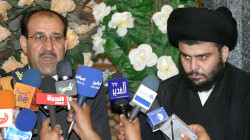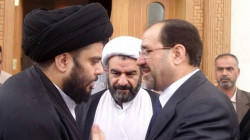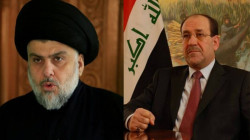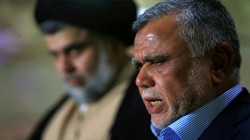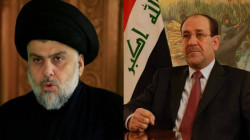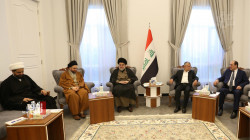Report: With killers in charge, Iraq faces more chaos and woe
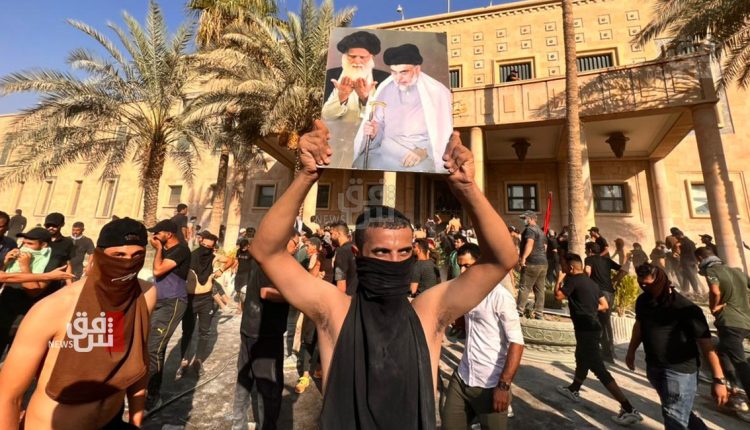
Shafaq News / In 2003, Abdul-Majid al-Khoei, leader of a liberal branch of Shia Islam, returned to Baghdad from exile in London with the aim of introducing a moderate and modern branch of his religion.
As the son of an imam who had died in prison under Iraqi dictator Saddam Hussein, he had a friendly following in his home country. The American occupiers of Iraq liked him and flew him to Baghdad after having overthrown Saddam’s regime.
Apparently unaware of the dangerous political rivalries unleashed after Saddam’s fall, al-Khoei traveled to the holy Shiite city of Najaf. He walked unarmed and unguarded into the shrine of Ali, the first Shiite imam. A mob surrounded him, pulled out daggers and sliced him to death.
The killers were followers of Moqtada al-Sadr, a fiery Shiite preacher and son of another martyred imam who had been a victim of Saddam. The American authorities, laboring to establish a democratic system, were furious. An Iraqi judge issued an arrest warrant for al-Sadr and US military officials swiftly pledged to bring him to justice.
Fast forward to now. Al-Sadr is alive and well and the political party he leads won the most seats – 73 – in last October’s parliamentary elections. But 165 are needed for a majority, and he couldn’t forge a working coalition.
In protest, a week ago, he pulled his legislators from parliament and said he was retiring from politics. This is a gambit he has played before.
Other parties quickly prepared to form a cabinet without al-Sadr’s party. Al-Sadr, having second thoughts, unleashed followers to storm government offices and embassies inside the Green Zone, the walled-off compound that was once the headquarters of US occupation authorities.
The violence left at least 30 dead, hundreds wounded and the country careening toward civil war. Combatants were armed with not only assault rifles but also rocket-propelled grenades.
There were photos of ruin and of odd conquest: Dozens of bare-chested rioters pose in the compound swimming pool. Within hours, Al-Sadr ordered his followers to go home. It has all left Iraq in an uneasy limbo of inconclusive political talks.
Oh, and whatever happened to that 2003 arrest warrant for the wanton killing? It was never served and is long forgotten by both the Iraqis and the US.
This is a story about the Iraqi failures, US bungling and Iranian meddling that have kept Iraq in chronic chaos. The current hiatus in violence is only an intermission.
This unresolvable rivalry along with the country’s endemic corruption makes domestic politics less an arena for debate and more like an open battlefield.
To pull itself together, Iraq itself will have to bring two incompatible forces together to agree on how to run the country: the nationalist al-Sadr, who opposes both US and Iranian meddling in Iraqi affairs, and a bloc headed by pro-Iranian former prime minister Nouri al-Maliki.
Shiite Muslims make up 60% of Iraq’s population. The remainder is pretty much evenly split between Kurds – who themselves are mostly Sunni Muslims – and Arabs of the same faith.
Adding to the mix are Christians, who account for a few percentage points. Most Iraqi Christians are indigenous Eastern Aramaic-speaking ethnic Assyrians who say their ancestral home is ancient Assyria.
Al-Sadr’s Mahdi Army strapped on AK-47 rifles during its recent riot. But it is not only al-Sadr who has practiced lethal political rebuttals.
Al-Maliki, who was prime minister from 2006 to 2014, is best remembered for unleashing security forces on political rivals – including Sunni Muslims, the minority that dominated the government under Saddam Hussein, as well as Christian communities.
In 2011, when protestors took to the streets to blast widespread government corruption, Al-Maliki labeled them terrorists. He sent police and hired thugs to rout the demonstrators.
Dozens of protestors died and scores of others were jailed. Terrorist attacks by Sunni insurgent cells were rampant, and it was no secret that not only democracy was at risk; so, too, was decency.
“Prime Minister Nouri al-Maliki presides over a system rife with corruption and brutality, in which political leaders use security forces and militias to repress enemies and intimidate the general population,” wrote Ned Parker, a Reuters correspondent, in a 2012 Foreign Affairs article entitled “The Iraq We Left Behind.” Its subtitle: “Welcome to the World’s Next Failed State.”
So what can meddling foreign forces can do to resolve or even further inflame Iraqi disputes? For the US, the crisis serves to diminish, even further this decade, its self-declared role as global leader.
Iraqi chaos is second only to this year’s other example of a big regional crisis: the clumsy US withdrawal from Afghanistan, the collapse of its government and the lightning-fast return of the terrorism-friendly Taliban.
And that raises other serious questions about the reach and relevance of democracy in a turbulent world and what risks are worth taking. Is it really wise for other countries, even close allies, to follow the US into open-ended conflicts, as is now underway in Ukraine? If the US design in Iraqi democracy was supposed to be a model for undoing autocracies, who needs it?
The US-led war in Iraq was fought for eight long years on spurious grounds. US president George W Bush accused Iraq of developing atomic, chemical or biological weapons, and Saddam Hussein had none. Nor did he have anything to do with al-Qaeda, perpetrators of the 2001 airborne attacks on New York City and Washington, DC.
No matter, said the Bush administration. The occupation would help produce a model democracy in the desert nation that would inspire the rest of the Middle East to jettison autocracy.
It didn’t. At the least, these debacles mark the end of an era, four decades old, in which a major goal of US foreign policy was to nurture, and even force-feed, democratic rule worldwide.
Current President Joe Biden aims to move from democracy crusades and piecemeal interventions to old-style geopolitical rivalry and confrontation – the long-awaited “pivot to China.”
Biden’s response to the current Iraq crisis has been anodyne. In a phone call to interim Iraqi Prime Minister Mustaf al-Kadhimi, he praised Iraqi security forces, offered condolences to families of victims of the violence and called for dialogue. No mention of a new call by an Iraqi court to arrest al-Sadr.
Meanwhile, Iran, now the dominant outside force in the country, sponsors political parties and associated militias that make Iraq a kind of dysfunctional ward of the Islamic State. Iraqis generally have tired of Tehran’s Big Brother tutelage.
Iranian leverage on the Iraq scene diminished after America’s January 2020 assassination of the commander of Iran’s Quds Force, Qassem Soleimani. Soleimani had maintained friendly relations with all sorts of Iraqi political forces.
Since his death, Iraqis have chafed at Iran’s influence and there are few signs that Tehran has much sway with the myriad of political parties needed to support an al-Maliki-designed coalition.
The country is calm – perhaps exhausted – but it appears the stalemate will be difficult to break. Al-Sadr wants new elections. Al-Maliki wants the already elected parliament to carry on without al-Sadr.
Talks to try to revive normal political discourse have not gone well. Al-Sadr boycotted them.
(Asia Times)
